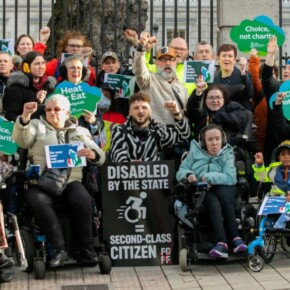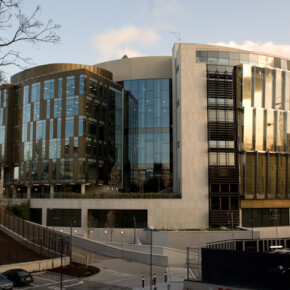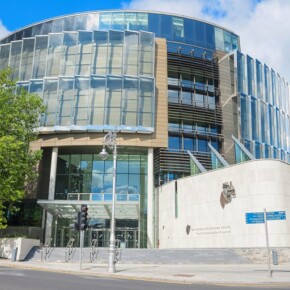Ballymun-Finglas gears up for election season
Mike Finnerty 20 Dec 2023
Next June will see Ballymun-Finglas join the rest of Dublin in voting for who they want to see on Dublin City Council.
The constituency has an intriguing make-up; if you combined all of the 2019 votes of left-wing parties such as People Before Profit, The Workers’ Party and Independents 4 Change, there would be enough votes for a seat, with 8.8% of first preferences going towards those parties.
While vote-splitting is not necessarily an issue in Irish politics thanks to the virtues of PR-STV, there is a clear appetite and demand for left-wing politics, yet the fragmented left vote means that a good chunk of voters will be left frustrated and unrepresented.
Yet in the same constituency, a Fianna Fáil candidate, in the form of now-TD Paul McAuliffe, roared home on the first count in 2019.
Of course, McAuliffe’s rip-roaring first count victory comes with the qualifier that this was his 3rd election and was marking his 10th year as a Councillor for the area.
Fianna Fáil’s overall share of the vote in 2019 was an impressive 27%, so all of those voters being up for grabs is a tantalising prize for any party.
Fianna Fáil themselves wasted no time in selecting a candidate, indeed, they selected their two candidates in the form of incumbent Councillors Keith Connolly, Briege Mac Oscar back all the way back in February 2023.
It becomes that much more tricky to figure out how Ballymun-Finglas voters may vote next June when you take into account that turnout was just 37.7% last time, the 2nd lowest of all Northside constituencies that went to the polls in 2019.
All colours of the proverbial political rainbow are represented in this constituency.
To put this example into focus, Aontú will contest the constituency for the first time, with local pharmacist Edward MacManus running for the party.
MacManus’ candidate profile notes he organised a petition that called for the redevelopment of the Ballymun shopping centre that gathered over 10,000 signatures.
That kind of candidate with strong local bona fides could be the kind of candidate Aontú is looking for.
Party leader Peadar Tóibín stated at the party Ard Fhéis in October that Aontú “our vote and our poll ratings are higher than long-established political parties, with many more elected reps, who are in receipt of state funding.”
If Aontú wish to prove they are more than Sinn Féin with a social conservative bent, a victory in Ballymun-Finglas would show that the experiment is paying off.
Sinn Féin have made no secret of treating the locals as a proving ground for the general election, and have shown signs that they are attempting to learn lessons from the 2019 debacle.
Last time out, Sinn Féin saw only 1 candidate elected out of 4, which was down to a number of factors including other left-wing parties in the constituency, the parties’ patented vote distribution between candidates not panning out and the controversy surrounding Noeleen Reilly.
Reilly left Sinn Féin in 2018 amid allegations of bullying, but it was Reilly who had the last laugh, being the 2nd candidate elected on the day in 2019 and scooping nearly 1,800 first preferences.
Reilly is as strongly positioned as perhaps any candidate on the ballot to retain her seat next time out, so it will take a strong Sinn Féin campaign to get their people elected in this 6-seater.
It should be noted that in 2019, candidate Cathleen Carney Boud lost by 11 votes to Anthony Conaghan.
Conaghan was the only candidate to get elected last time out for Sinn Féin, with Leslie Kane and Mick Dowling are first-time candidates looking to secure a seat.
If Sinn Féin can instil discipline among voters and push a clear “vote 1, 2, 3” for their candidates, they may find themselves as the laughing third.
Fine Gael performed well nationwide in 2019, finishing as the 2nd largest party overall, but failed to get a candidate elected in Ballymun-Finglas.
2019 was a bruising affair for the party in the constituency, taking just 5.7% of first preferences, with the performance made all the more stinging following past victories by Dr Bill Tormey and former TD Noel Rock.
First-time candidate Arnold Guo looks to win a seat back for Fine Gael, and he told Northside People “I’ll work to ensure accessible home ownership, maintain infrastructure, manage traffic more efficiently, and address anti-social behaviour.”
Guo works as a manager for a multinational company, and said “I am determined to work with everybody to shape a future that reflects the wishes of Ballymun and Finglas and which will be the envy of the rest of the city.”
Labour have announced they will be running John Lonergan as their candidate in June, with Lonergan holding the distinction of being Labour’s youngest candidate at 19 years old.
Labour lost the seat held by former Lord Mayor Andrew Montague in 2019, but the party could be fairly confident in their chances if the Sinn Féin wave doesn’t materialise and Lonergan proves himself on the doorstep.
The biggest threat to the party comes in the form of the Social Democrats, who got a candidate elected in 2019 despite having no presence in the area previously.
The Social Democrats got Mary Callaghan elected with nearly 9% of first preferences.
Since her election in 2019, Callaghan has served as Deputy Lord Mayor of Dublin, and is currently the chairperson of the North West Area Committee.
Rounding out the progressive vote, you have the incumbent Caroline Conroy and housing activist Conor Reddy running for People Before Profit.
People Before Profit are more likely to hurt Sinn Féin out of any party, and with 6-seaters the kind of constituency the leftist party are best suited to, it will be a real scalp if they can claim a seat here.
Conroy had an eventful year in her term as Lord Mayor of Dublin, serving as Mayor when anti-immigrant protests made national headlines, and the Green Councillor established herself as someone not afraid to speak her mind.
She made further headlines for calling anti-immigrant protesters “really embarrassing,” which makes her a candidate with a sharp tongue.
Reddy meanwhile has gathered over 500 signatures locally calling for vacant houses to be brought under Dublin City Council control.
If Reddy could win a seat here, it would be a real scalp for People Before Profit – if Sinn Féin spread themselves too thin then the red team could be the party that benefits the most.
On the topic of anti-immigration, prominent anti-immigration activist Gavin Pepper is running in the constituency.
Pepper has become one of the most defining personalities in the topic surrounding immigration, gathering a major online following in the process.
Whether that success transfers into the real world remains to be seen.
Considering Ballymun-Finglas is a 6-seater, candidates from the fringe left or right in theory have a better chance of being elected.
Pepper will claim he is tapping into working-class concerns about immigration, but in lieu of dedicated polling from the area it is guesswork to assume how he does in June.
As we wrote a few weeks ago, it would be much easier and expedient for the existing political parties to use language or rhetoric similar to Pepper but phrased in a more elegant way in a bid to win over immigration-conscious voters, or gamble that immigration isn’t a big an issue as people on Twitter would have you believe.
Pepper will need to be cracking at least 5% of first preferences and hope that he somehow becomes a transfer-friendly candidate; otherwise, he will fail to be elected and will be stuck getting into arguments with would-be constituents on Twitter until the next round of elections.
Other independent candidates in the constituency include Leon Bradley, Jeff Gallagher and Diarmaid Mac Dubhglais.
With such a colourful cast of characters, Ballymun-Finglas promises to be one of the more lively constituencies to watch out for next June.











